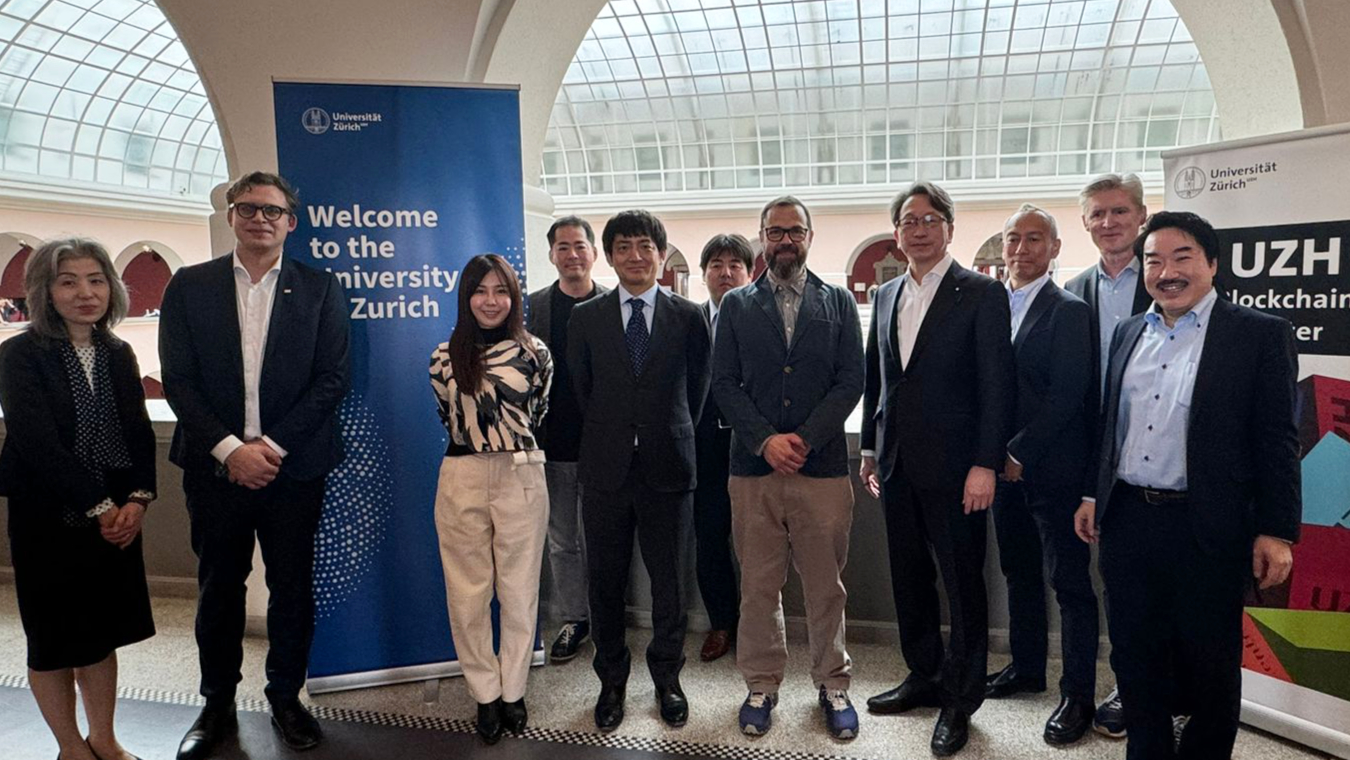Japanese Delegation Explores Swiss Blockchain Innovations at UZH
A high-level delegation from Japan's blockchain sector has visited UZH to learn about Switzerland's approach to blockchain policies and regulation. The delegation consisted of politicians and representatives of the Japan Blockchain Association (JBA) and the Parliamentary Federation for Blockchain of the Japanese Parliament, highlighting the significant interest in Swiss blockchain initiatives.

The visit to UZH was part of an effort to understand how Switzerland has become a leader in integrating blockchain technology into its financial and legal systems. Over the last few years, Switzerland has positioned itself at the forefront of blockchain technology, particularly in the financial sector. It is home to over 1,000 companies specializing in fintech and blockchain, supported by a legal framework that encourages innovation. This includes the Federal Act on the Adaptation of Federal Law to Developments in Distributed Electronic Register Technology, enacted on 1 August 2021, which provides a clear legal basis for blockchain applications.
Learning from past challenges
Japan's interest in Swiss blockchain solutions stems from its own experiences with blockchain and cryptocurrencies, notably the collapse of Mt. Gox, a major Bitcoin exchange based in Japan, in 2014. This event exposed the vulnerabilities in the cryptocurrency market, not just in Japan, but globally. As a consequence, it acted as a catalyst for Japanese regulators to re-evaluate and strengthen the regulatory frameworks surrounding blockchain and cryptocurrency technologies to prevent such failures in the future and to support the healthy development of blockchain technology in Japan. As such, the visit to UZH offered Japanese policy-makers insights into how Switzerland's legal and regulatory frameworks could potentially be adapted for Japan's growing blockchain landscape.
The nine-member delegation from Japan, led by the Honorable Maasaki Taira, a member of the Japanese House of Representative, was welcomed by Claudio J. Tessone, Professor of Blockchain and Distributed Ledger Technologies at UZH and Chairman and Academic Director of the UZH Blockchain Center. A well-known blockchain expert and director of the the popular UZH Summer School “Deep Dive into Blockchain”, Claudio Tessone commented on the exchange: “The Swiss blockchain ecosystem stands out because of its strong yet lean regulatory framework that supports technological advancements while ensuring comprehensive oversight. This balanced approach enables a dynamic environment where both innovation and security are prioritized, making Switzerland an attractive model for countries aiming to cultivate a similar atmosphere. In that regard, Japan stands out, and I see a lot of potential for synergies between them.”

From AI to stem cells
Blockchain technologies represent just one of the many fields linking UZH with Japan. The strategic partnership with Kyoto University, for instance, involves AI regulation, evolutionary biology, and stem cell research (iPS). A recent highlight in these collaborations was the iPS Symposium at UZH, which brought together industry experts with researchers from the Swiss Institute for Regenerative Medicine (IREM) and the Kyoto University’s Center for iPS Research and Application (CiRA). The event was one of various scientific and cultural events celebrating the 160th anniversary of diplomatic relations between Switzerland and Japan. Furthermore, the collaboration of UZH with Doshisha University enhances the approach to intellectual property issues in AI, while engagements with the University of Tokyo focus on evolutionary biology, environmental systems, and AI.
Anne Nuria Boekhout

